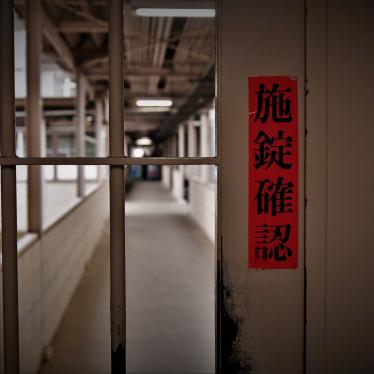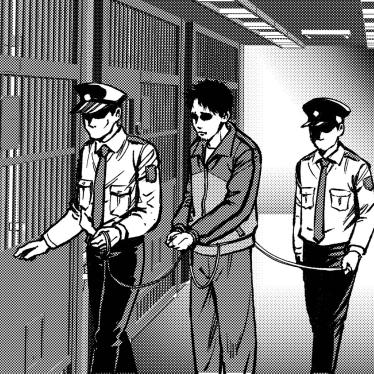(Tokyo) – Minorities in Japan face difficulties in fully realizing their rights and the government has an abysmal record in recognizing asylum seekers, Human Rights Watch said today in its World Report 2017.
“While Japan is a strong Asian democracy, it is not showing global ethical leadership on human rights,” said Kanae Doi, Japan director at Human Rights Watch. “Japan remains closed to thousands of asylum seekers, including Syrians, while those who do make it to Japan rarely have their refugee status recognized.”
In the 687-page World Report, its 27th edition, Human Rights Watch reviews human rights practices in more than 90 countries. In his introductory essay, Executive Director Kenneth Roth writes that a new generation of authoritarian populists seeks to overturn the concept of human rights protections, treating rights as an impediment to the majority will. For those who feel left behind by the global economy and increasingly fear violent crime, civil society groups, the media, and the public have key roles to play in reaffirming the values on which rights-respecting democracy has been built. This is the first chapter on Japan in the annual World Report since the Tokyo office opened in April 2009.
Japan provides a challenging environment for those who arrive in the country as asylum seekers or migrant workers. Although the number of asylum applications has increased dramatically in recent years, Japan recognized only four asylum seekers as refugees in the first half of 2016. The labor law since 2010 has been fully applicable to Technical Intern Trainees, most of whom come from China and Vietnam and many of whom work in factories, agriculture, fishery, and construction. Yet weak legal protections resulted in abuses in 2016, including illegal overtime, unpaid wages, and forced return.
While same-sex marriage is not legally recognized in Japan, issues of sexual minorities received increasing attention in 2016 with more municipalities recognizing same-sex partnerships. To address discrimination based on sexual orientation and gender identity in Japanese society, including in schools as documented in a 2016 Human Rights Watch report on bullying against LGBT students, a bipartisan parliamentary group discussed legislation to address the issue but made insufficient progress.
In April, the Act on the Elimination of Discrimination against Persons with Disabilities, which the Japanese government enacted as part of its ratification of the Convention on the Rights of Persons with Disabilities, came into effect. In July a 26-year-old man stabbed to death 19 men and women and wounded another 27 in a state-funded institution for people with disabilities in Sagamihara, southwest of Tokyo. However, no major reforms have been carried out to address stigma against people with disabilities, including by guaranteeing their right to live independently in the community.
Japanese criminal law also falls short on rights. The criminal procedure law allows detention of suspects for up to 23 days prior to prosecution without the possibility of bail. Japan also used the death penalty in 2016, executing 3 convicted criminals by hanging.
In a positive move, lawmakers in May amended the Child Welfare Act in May to refer to children as rights holders for the first time, laying the ground for a major shift from institutional care in Japan’s alternative care system. As a 2014 Human Rights Watch report highlighted, 85 percent of children under the alternative care system live in institutions.
Japanese foreign policy emphasized quiet diplomacy, particularly in Asia, despite Prime Minister Abe’s announcement in 2013 that Japan will carry out a “diplomacy based on the fundamental values of freedom, democracy, basic human rights, and the rule of law.” In his 2016 speeches, Abe only vowed to deepen ties with countries sharing these values. The main exception has been North Korea, largely as the result of Pyongyang’s past abductions of Japanese nationals.
Japan has been largely silent on countries in the region with serious human rights problems such as the Philippines, Thailand, Cambodia, Vietnam and Burma. Prime Minister Abe recently hosted a friendly visit by Philippines President Rodrigo Duterte and did not condemn the extrajudicial killings of more than 6,000 people under his anti-drugs campaign.
“This is a particularly important time for the Abe government to show its leadership as Asia’s largest democracy and the world’s third largest economy,” Doi said, noting that expectations for U.S. leadership on many human rights issues are low since the election. “A good place to start in 2017 is to enact major reforms on the protection of refugees and migrant workers.”





